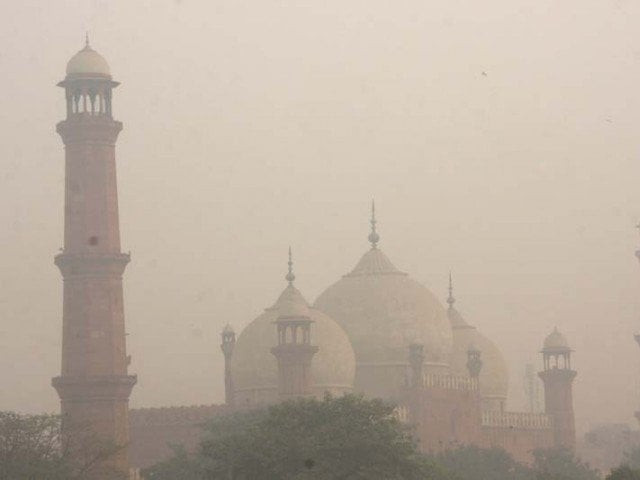Return of smog feared to aggravate respiratory diseases
International organisation reveals that Covid-19 lockdowns may have failed to make a significant impact on CO2 levels

Coronavirus-induced lockdowns have helped abate Punjab’s smog intensity to a significant degree this year. Where a trend like that would often point towards better health reports, an unforeseen increase in respiratory illnesses in the region has raised new concerns for the medical community.
On top of that, experts believe the reduction in air pollution and subsequent drop in smog levels is rather a temporary change. It is feared that air quality might start worsening as soon as the lockdowns are permanently lifted, which is likely to further aggravate the spread of respiratory illnesses
According to Mayo Hospital Medical Officer Dr Salman Kazmi, despite clear skies from recent rains and reports of increased air quality, 40 per cent of daily patients in Lahore’s emergency wards are those with aggravated asthma and other respiratory diseases.
“The reduction in smog and better air quality should have been beneficial for those prone to respiratory illnesses. But Covid-19, which is spreading rapidly in winters, has become more dangerous than smog for those with any kind of breathing disorders,” said Dr Kazmi.
Environmental experts believe that emissions of harmful gases have reportedly decreased in countries where people have been told to stay indoors in a bid to curb the pandemic’s spread. Punjab too saw a similar trend during its various smart and total lockdowns, where unnecessary movement was outlawed, resulting in significantly less traffic in its metropolis regions.
Emissions from air and road travel account for 11 and 72 per cent of greenhouse gas emissions respectively. Per environmentalists, the current decline however, is largely due to the decrease in industrial activity, which is responsible for over 18.4 per cent of the total global pollution caused by human activities.
A drop in the ocean
According to World Meteorological Organisation (WMO), lockdowns, border closures, flight cancellations and other restrictions during Covid-19, have resulted in a decline in carbon dioxide emissions around the world. However, per experts, the degree of decline in CO2 emissions so far, is still not significant enough abate the years of damage caused by callous human activities.
During the height of Covid-19, carbon dioxide emissions fell by an average of 17 per cent per day. Whereas, WMO data projects a 4.2 to 7.5 per cent reduction in collective greenhouse emissions by end of 2020. But despite of that, it is believe that the decrease will still not be significant enough to have any lasting impact on the amount of CO2 in the atmosphere. Owing to which, the organisation has referred to the temporary decline to be as inconsequential as a ‘drop in the ocean.’
Punjab Minister for Environmental Protection Bao Rizwan said that Pakistan is one of the 16 countries experiencing dramatic variations in weather patterns caused by climate change. “With that in mind, we have initiated various effort to curb air pollution in the region. Since the recent rains, the PM2.5 rate in Punjab, especially in Lahore, has dropped from 200 to 150. Whereas, going further measures such as conversion of brick kilns to ZigZag technology, use of Eurofio grade fuel in vehicles and ban on use of unhealthy smoke producing fuels in furnace mills and factories have also been introduced by the Punjab Environment Protection Department and Punjab Disaster Management Authority,” told The Express Tribune.
Published in The Express Tribune, December 8th, 2020.



















COMMENTS
Comments are moderated and generally will be posted if they are on-topic and not abusive.
For more information, please see our Comments FAQ